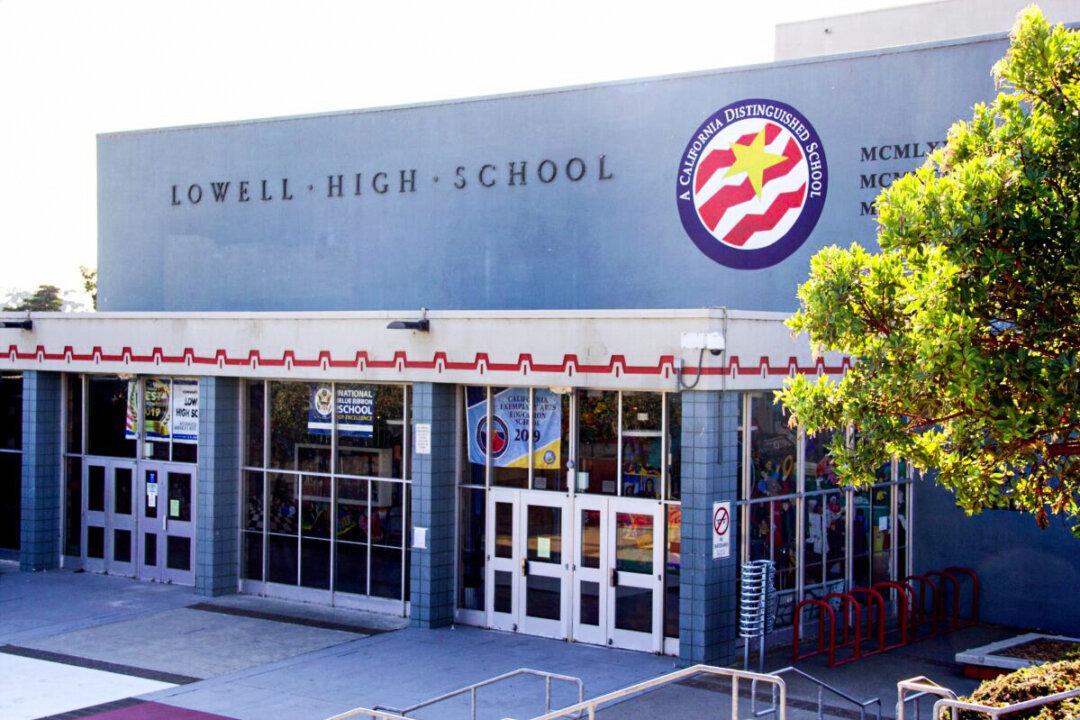San Francisco’s Lowell High School, one of the top-performing public schools on the West Coast, has reported a spike in failing grades among students after replacing its academics-based admissions system with a lottery.
Lowell used to be the only school in the San Francisco Unified School District (SFUSD) where admissions were determined by a student’s grades and admission test scores, similar to how colleges evaluate their applicants.





